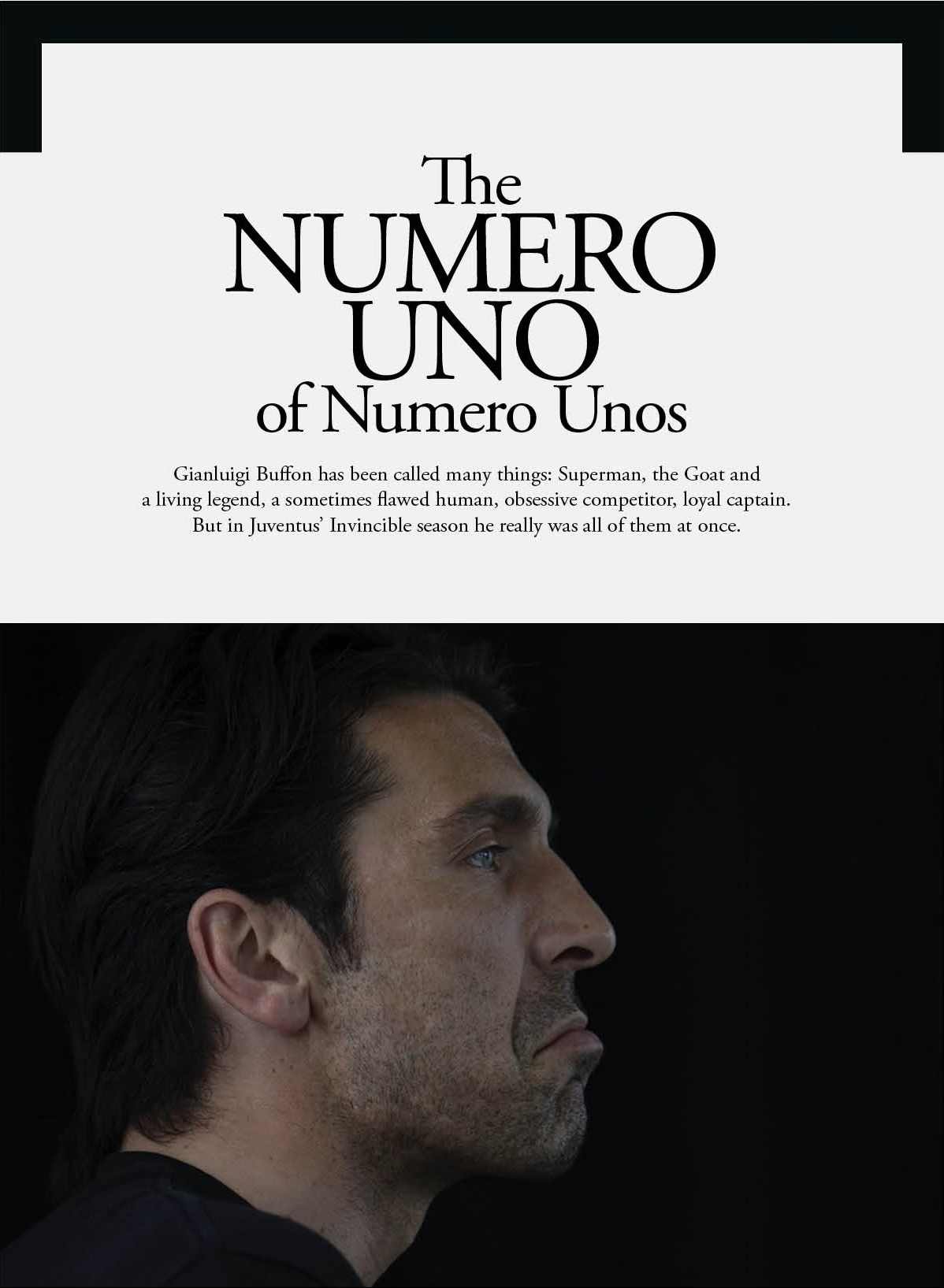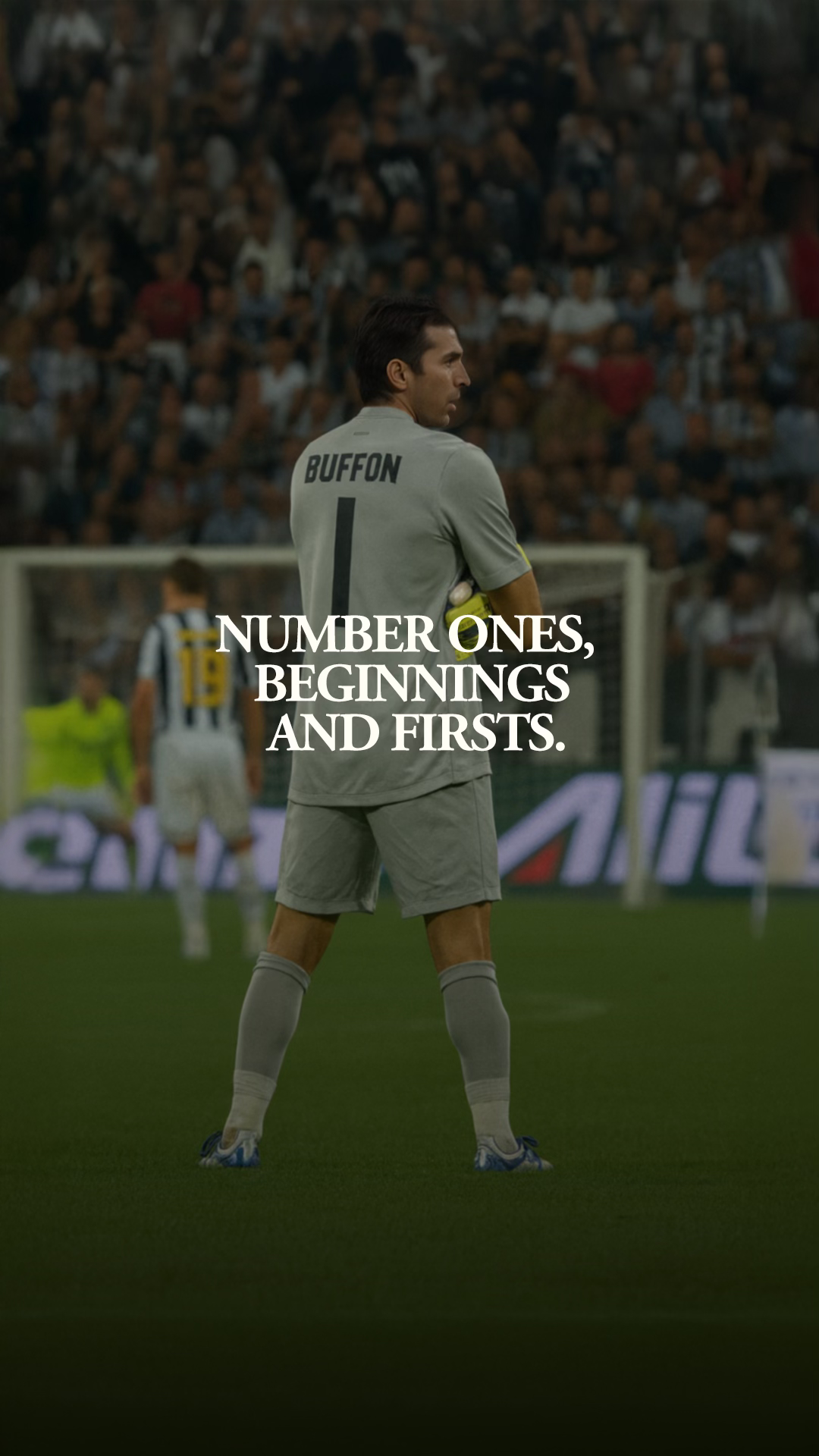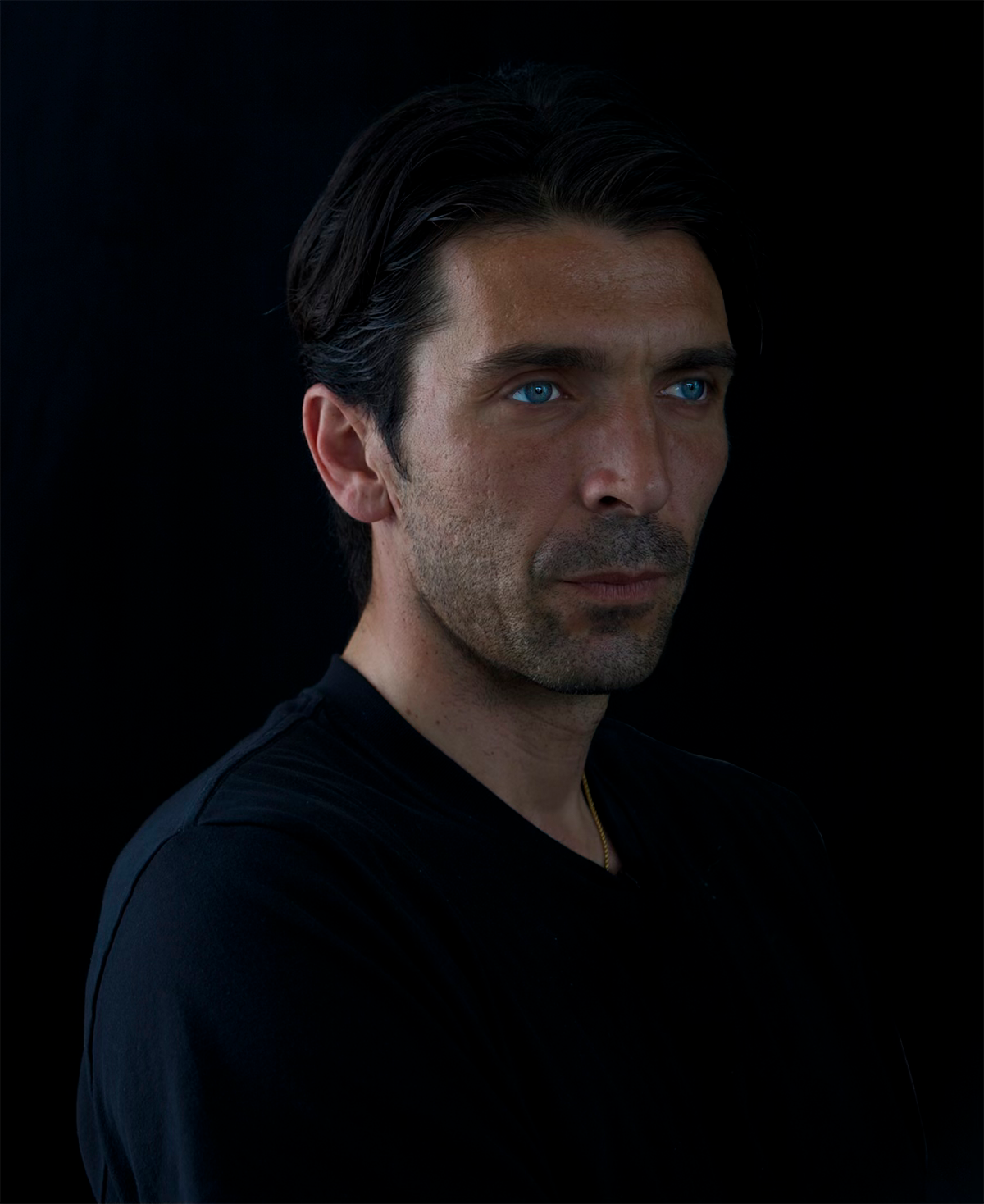We expected to meet Gianluigi Buffon at Vinovo on November 21, 2009, during one of our early development expeditions for the film. After training, management ushered us into a glass enclosure — part greenhouse, part temple — where special guests could meet the players. Some came through smiling, signing jerseys, posing for photos. A still up-and-coming Giorgio Chiellini, veteran Mauro Camoranesi (with a slightly rasta look that day), even Sebastian Giovinco, who gave us the chance to stealthily measure ourselves against him to see if we finally had a height advantage over at least one Juve player. Let’s call it a draw — though we swear our shoulders were broader than the Atomic Ant’s.
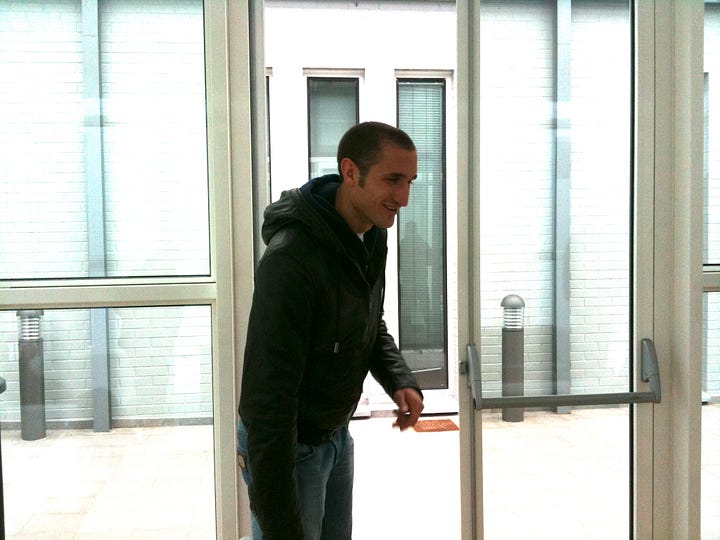
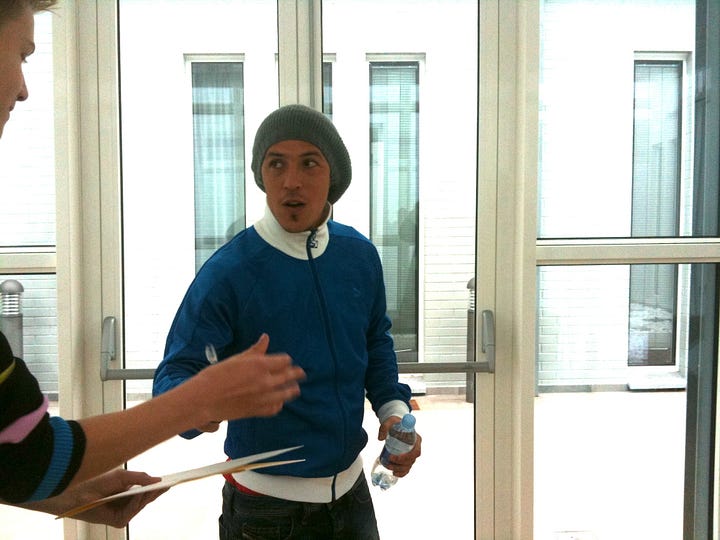
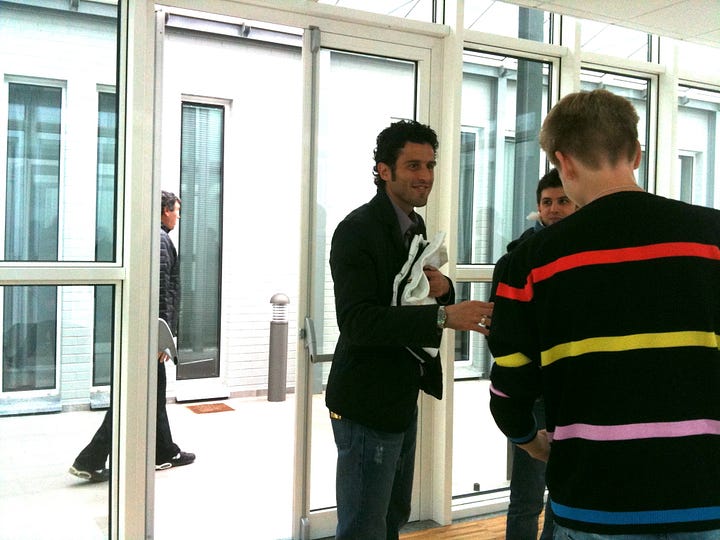
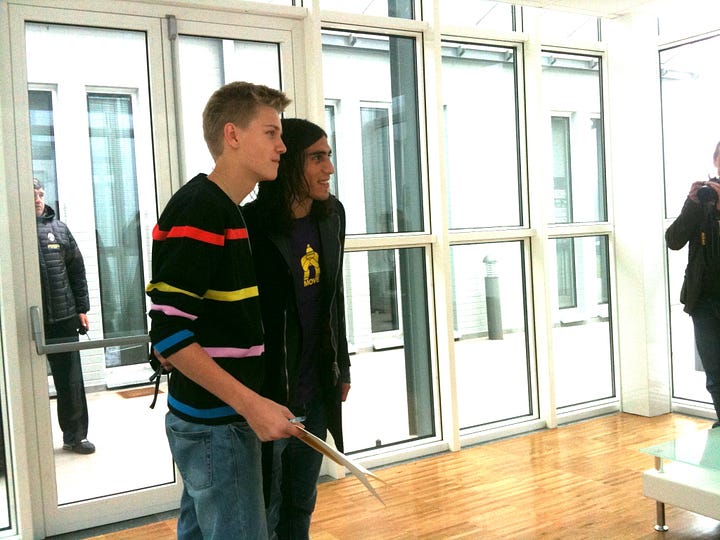
Not every player stopped by. Del Piero, for instance, tried to slip away. We (Mauro actually) spotted him in the car park and, too cool to run over ourselves, nudged a desperate fan into action. It worked. We walked over and got to observe our mystical captain expertly deal with the surrounding Juventini. The fan who played his part walked away with a priceless autograph: a 1996 Champions League jersey signed by Pinturicchio himself. Curiously, we distinctly remember Del Piero didn’t say a word or even make a sound. Watching the fans around him looked like scene from a theme park when kids a world famous Disney character. We played it quiet as well and didn’t get anything signed, but left happy for having acted as midfielders in a small mission accomplished. Back in the glass box, we greeted Fabio Grosso and Martín Cáceres, but the towering presence we had braced for never appeared. Buffon didn’t come.
Fast-forward to the Olimpico in Turin, May 2011. We were finally pitch-side, cameras rolling, just meters away from Gigi. Close — but not close enough. A few months later in Villar Perosa, we stood only a few feet away from him this time. Still not so much as a handshake. Production carried on through that mythical 2011/12 season, with full access and countless encounters. Yet Buffon remained somehow out of reach. The long-awaited moment finally arrived on May 12, 2012, when we not only got to say hello but also ask him anything we wanted to know in an exclusive filmed interview. Gigi did not disappoint.
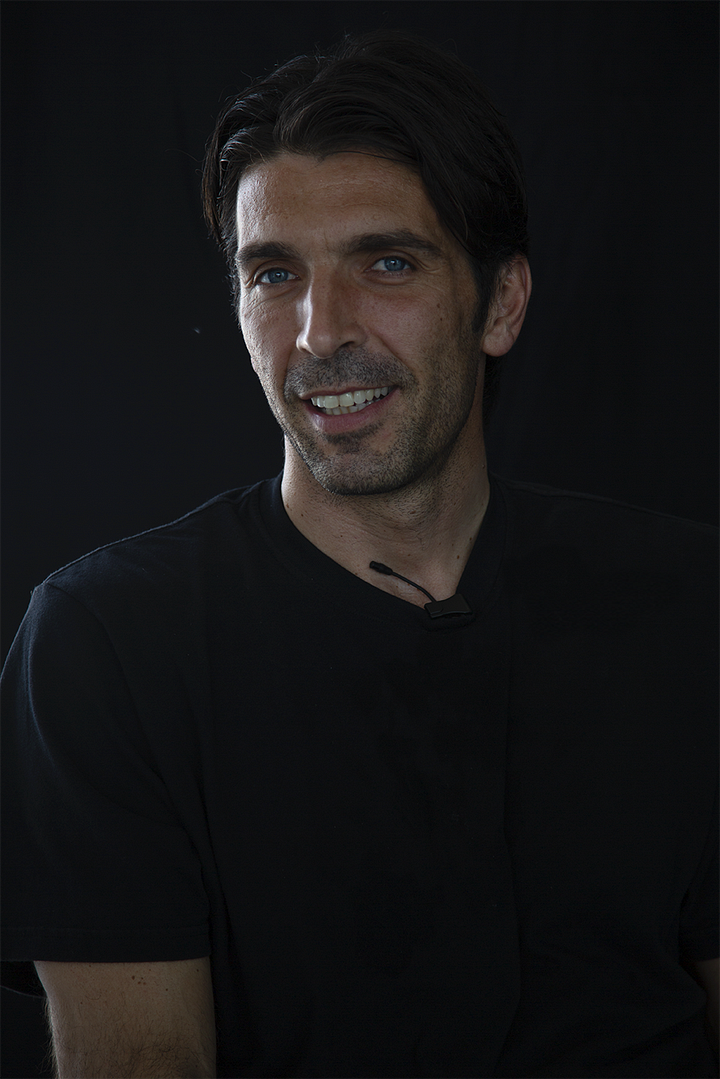
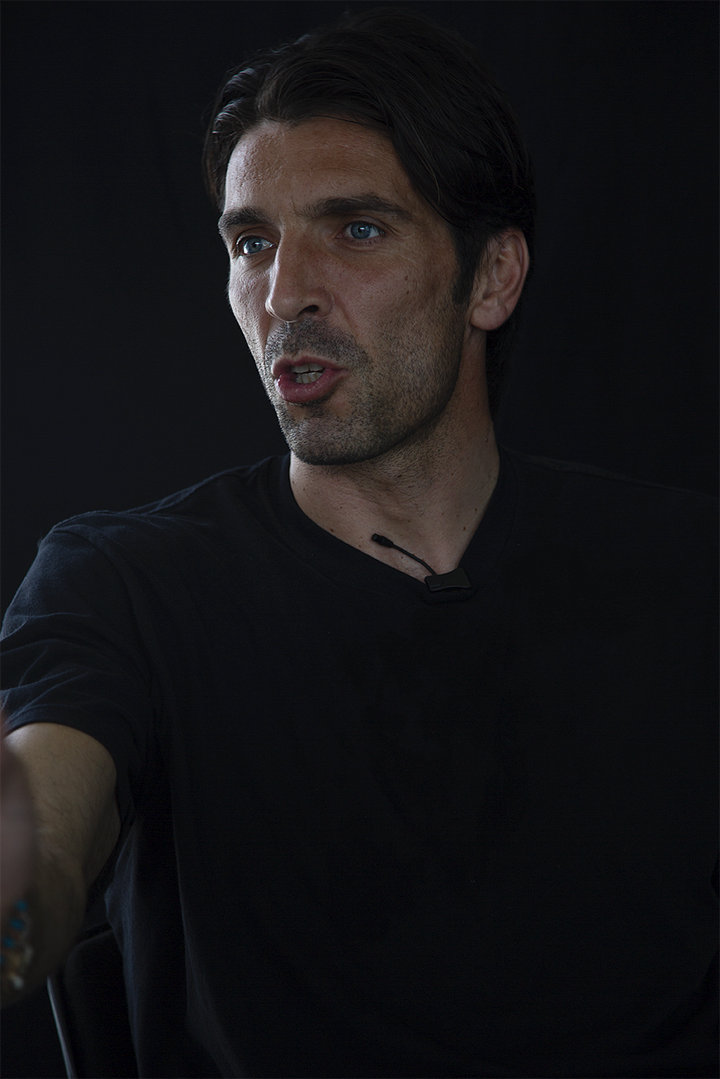
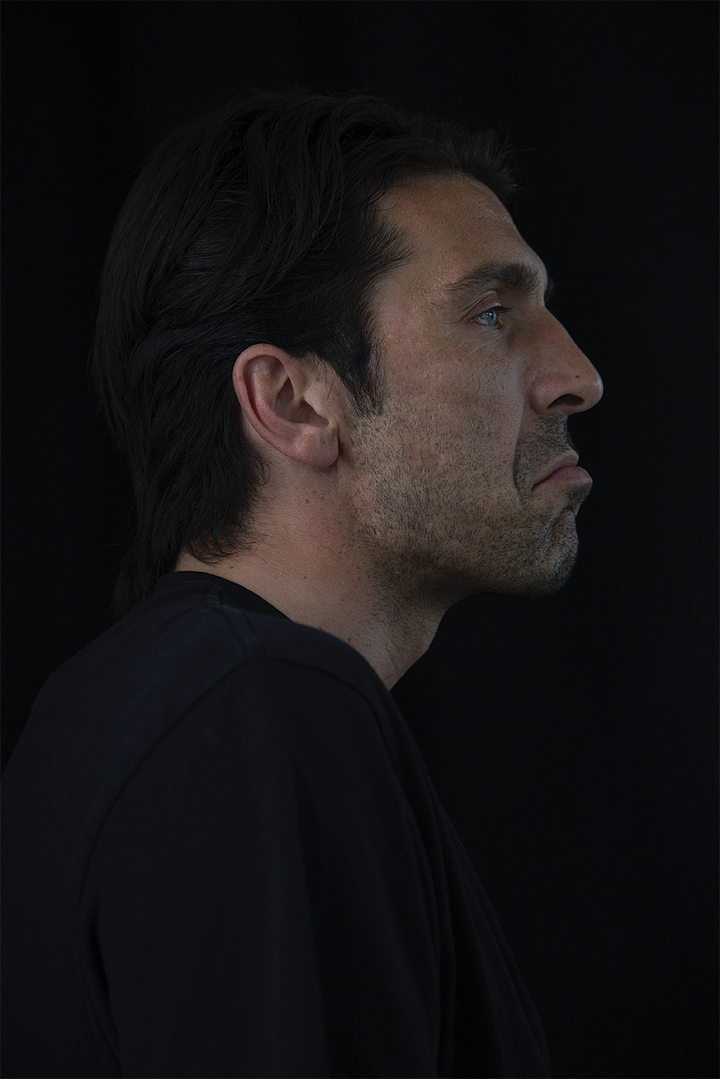
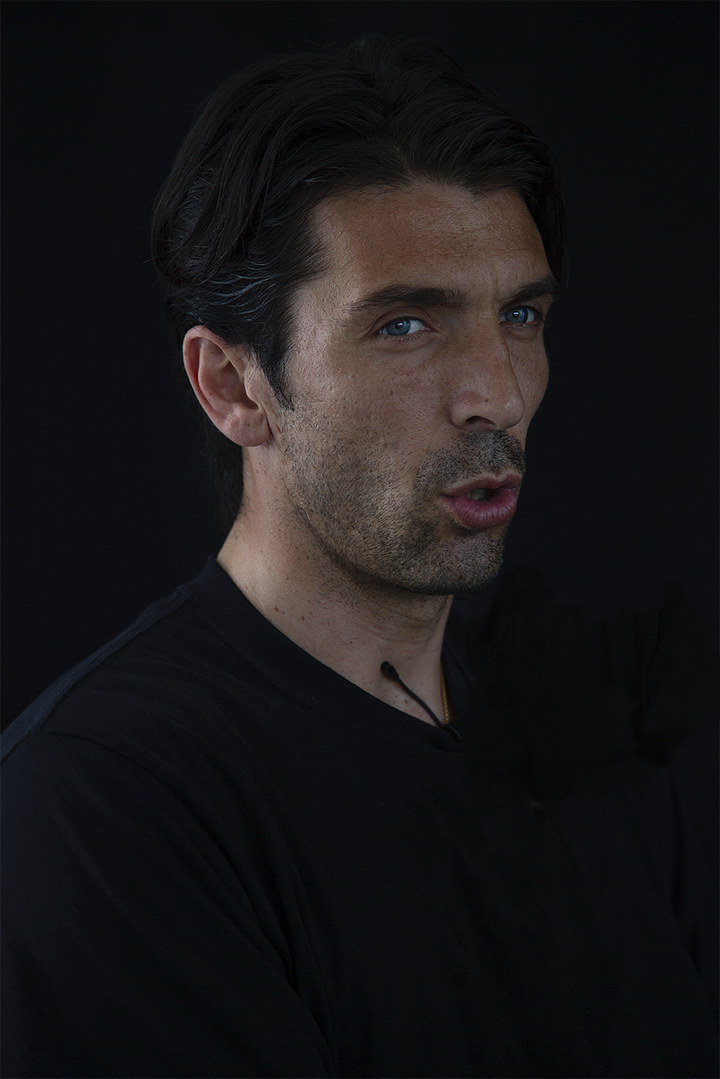
The Player
Buffon was, from the start, wired differently. Abnormally competitive by nature, he treated training with the same intensity as finals, roaring at teammates who let their focus slip, demanding perfection from himself even when the scoreboard already said “job done.” His edge was less about fire than obsession — an unwillingness to lose in any context, even in small-sided games at Vinovo.
The numbers back the myth. In his debut season at Juventus, he conceded just 23 goals in 34 league appearances, keeping 17 clean sheets and delivering the Scudetto on that fan-favorite final day, 5 maggio 2002. Inter collapsed in Rome, Juve triumphed in Udine, and Buffon lifted his first league title — the sweetest possible introduction to Turin. It was only the beginning: ten more Scudetti, multiple Coppa Italias and Supercoppe, and over 500 appearances later, he is still Serie A’s benchmark for goalkeeping longevity and excellence.
Leadership was there from the outset. Even as a 23-year-old surrounded by Del Piero, Thuram, and Davids, Buffon’s voice carried loudest in the huddle. Years later, when Juventus reeled from Calciopoli and the abyss of Serie B, it was Buffon who became the axis around which Conte could rebuild. He was less captain and more commander — a leader not appointed but undeniable.
The Person
Yet behind the gladiator’s posture is a person full of contradictions, quirks, and quiet generosity. Buffon, for instance, has a reputation for impatience. On set during one of our film shoots, he executed what we still call the “fastest lav microphone removal in cinema history.” Another time, during the shoot for the third gold star jersey, he managed to vanish Houdini-style before we’d even reset the cameras.
“A Scudetto so beautiful, so hard-earned, so unexpected, will never happen again.”
But his true measure came in the summer of 2006. Fresh off lifting the World Cup as Italy’s starting goalkeeper — the absolute peak of his value — Buffon chose to stay when Juventus were relegated to Serie B. The decision was incomprehensible at the time. He had just conquered the world and could have shattered transfer and salary records with a single move. And now he was expected to play in Italy’s minor league? Impossible. Yet he stayed.
When Juve returned to Serie A, the doubts that swirled weren’t about whether he could handle the job. They were about whether he would leave for new adventures and bigger paychecks. Buffon told us in our interview that he felt he had fulfilled his responsibility by bringing Juventus back to the top flight. He believed it was time to go. Clubs abroad waited with larger contracts, and Juve’s own staff feared the inevitable. But then CEO Jean-Claude Blanc showed him a video the staff had prepared — a film reminding Gigi how much he meant to the club and how they still believed they could win the Champions League together. In the end, Buffon stayed. He was paid more, but not nearly what he could have earned elsewhere. What mattered wasn’t the money. It was the meaning.
He also found time for gestures that meant the world to us: writing the introduction to The Juve Story book, starring in that third gold star jersey shoot, and even showing up at our premiere. Favors that spoke less of superstar distance and more of human loyalty.
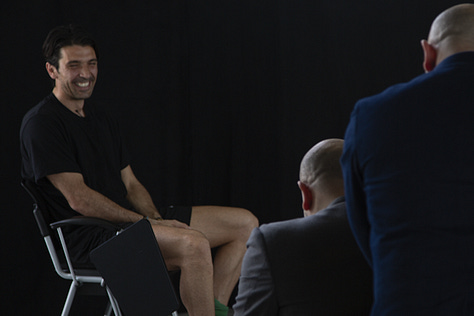
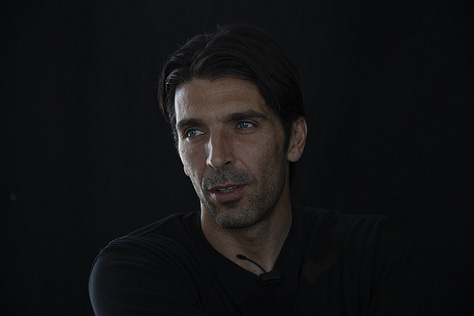
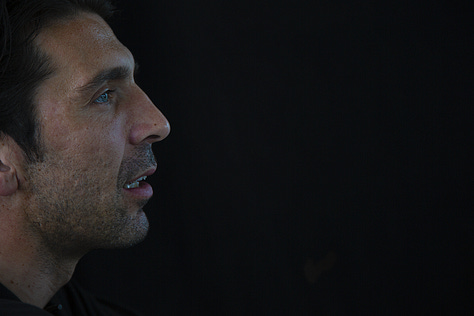
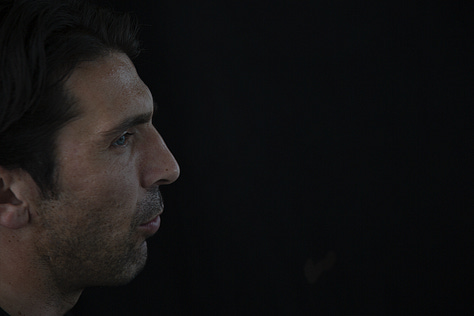
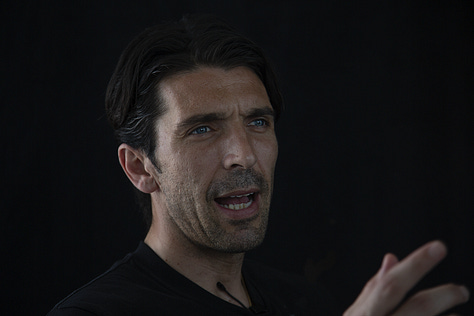
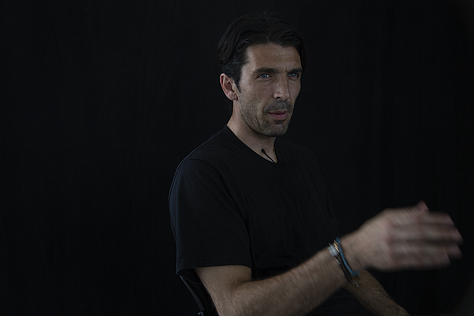
The Invincible
All of which set the stage for 2011/12 — the season of perfection. Buffon’s fingerprints are on every twist of Juventus’s unbeaten march.
There was the penalty save against Francesco Totti in Rome — a moment that could easily have handed Juve their first loss. Instead, Buffon’s right hand wrote another chapter of defiance into the rivalry.
And then there was the day-to-day wall he built behind Barzagli, Bonucci, and Chiellini — the now-mythic BBC. Twenty-one clean sheets in 35 appearances, just one shy of the all-time Serie A record set by Fabio Cudicini and Sebastiano Rossi. His presence allowed Conte’s Juventus to attack without fear, knowing their last line was the best in the world.
There was also the Hollywood drama in Lecce, when his mishandled back pass gifted an equalizer in the 85th minute.
In most seasons, that could have shattered an unbeaten run. In this one, it became a reminder of Buffon’s humanity: even gods can stumble, but invincibility is forged in recovery.
A week later, in Cagliari, he was steady as granite, restoring the calm that had momentarily cracked. And then, on the final day, Juventus not only sealed the impossible Scudetto — they also fulfilled every Juventino’s dream of stitching on the third gold star before either of the Milanese rivals could add their second. It was the closing act of a season that had restored pride and delivered on the wish Gianni Agnelli had first voiced back in 1990.
Gianluigi Buffon has been called many things: Superman, the Goat and a living legend, a sometimes flawed human, obsessive competitor, loyal captain. But in Juventus’ Invincible season he really was all of them at once.


